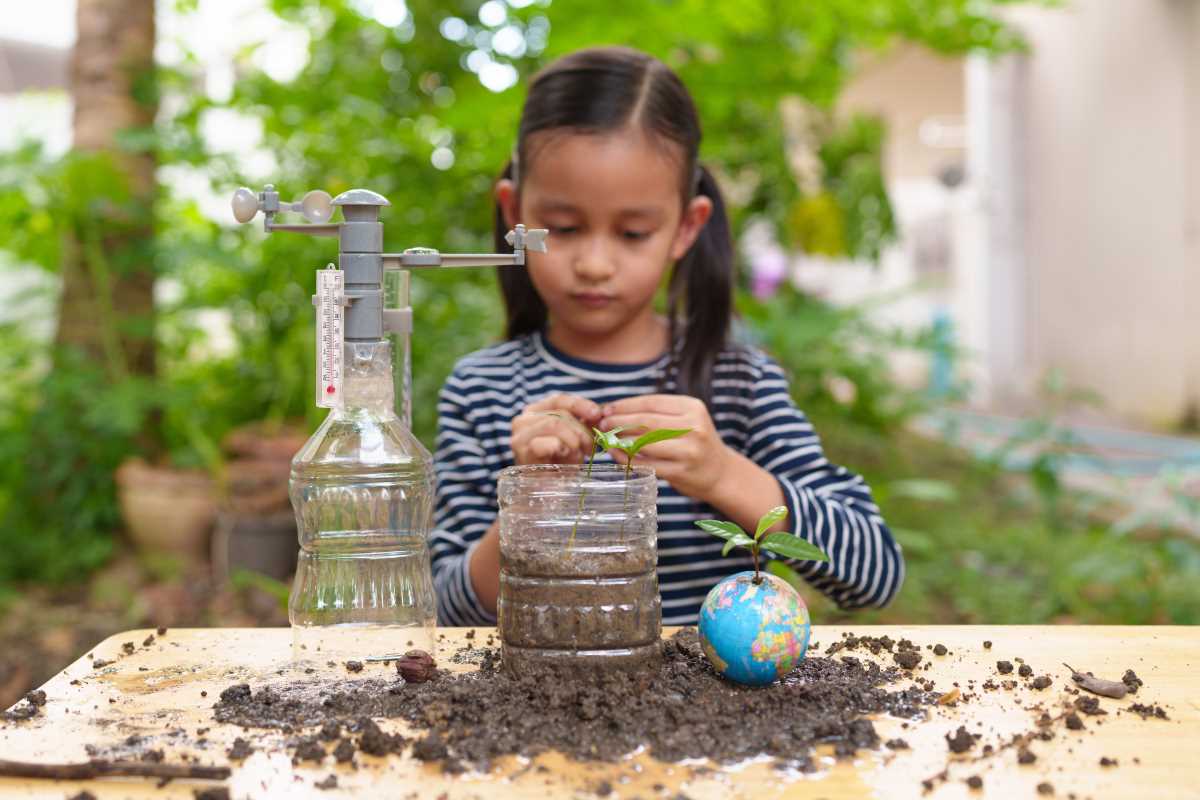Living sustainably has become more than just a buzzword; it’s a lifestyle choice that can make a huge difference for our planet. For families, making small changes in everyday life can have a big impact—without needing to overhaul everything overnight. But for busy parents juggling work, school schedules, and household tasks, adopting a more sustainable lifestyle can feel overwhelming. The good news is that sustainability doesn’t have to be complicated or expensive. By making simple, eco-friendly choices at home, you can reduce your family’s carbon footprint and teach your kids the importance of taking care of the planet.
In this article, we’ll explore practical ways families can live more sustainably, without it feeling like a burden. From small changes to big ideas, we’ll break it all down so that you can make a positive impact on the environment while still keeping life running smoothly. Ready to get started? Let’s dive in!
Start with Waste Reduction
One of the easiest ways to live more sustainably as a family is by reducing the waste you generate. It's simple, effective, and doesn’t require a lot of time or money to get started. Here are some ways to tackle waste reduction:
1. Reduce, Reuse, Recycle: Start by cutting down on single-use plastics in your home. Instead of buying bottled water, invest in reusable water bottles for everyone in the family. Switch to cloth bags when shopping, and try to buy products with less packaging. Recycle wherever possible, and make sure everyone in the family knows what can and can’t be recycled in your area.
2. Composting: Food waste is a huge issue, and composting is an easy way to reduce it. You don’t need a massive compost bin; even a small container in your backyard or a composting bin under the kitchen sink can work. Composting reduces landfill waste and creates nutrient-rich soil for your garden.
3. Buy Secondhand: Thrift shopping for clothes, toys, and furniture is not only budget-friendly but also great for the planet. Instead of buying new items that require manufacturing and shipping, check out local secondhand stores. This also sets a good example for your kids, teaching them that it's okay to buy used and recycle older items.
Energy-Efficiency
The way your family uses energy can significantly impact your carbon footprint. Fortunately, there are several ways to reduce energy consumption, which will help reduce your environmental impact and lower utility bills.
1. Switch to Energy-Efficient Appliances: Many modern appliances come with energy-saving features, and upgrading to these options can make a big difference. Look for appliances with an Energy Star label, which indicates they meet energy efficiency guidelines. If it’s time to replace an old appliance, consider investing in an energy-efficient model to save energy in the long run.
2. Use LED Bulbs: Swap out incandescent bulbs for LED ones. LEDs use less power and last longer, so you'll save on electricity and avoid having to replace them as often. Plus, they don’t get hot, making them safer for kids in the house.
3. Turn Off and Unplug: Get into the habit of turning off lights when they’re not in use and unplugging devices like chargers, TVs, and kitchen appliances when they’re not needed. This prevents energy from being wasted and helps lower your electricity bills. You can even invest in smart plugs that automatically shut off power when devices aren’t being used.
4. Use Natural Light: Open your curtains during the day and let natural light fill your home. You’d be surprised how much energy you can save by relying on sunlight for your lighting needs, especially during the day.
Sustainable Food Choices
What we eat and how we buy our food plays a significant role in sustainability. Making more sustainable food choices can reduce waste, support local farmers, and lower your family’s environmental impact.
1. Buy Local and Organic: Shopping at local farmer’s markets or joining a Community Supported Agriculture (CSA) program is a great way to support local farmers and reduce the carbon footprint of your food. Organic products, while sometimes more expensive, are grown without synthetic pesticides and fertilizers, which can be harmful to the environment.
2. Reduce Meat Consumption: The production of meat, especially beef, has a large environmental impact due to water usage, land needs, and greenhouse gas emissions. Reducing your meat intake, even just a couple of days a week, can help reduce your family’s carbon footprint. Try swapping meat for plant-based proteins like beans, lentils, and tofu.
3. Minimize Food Waste: Plan your meals, create shopping lists, and make use of leftovers to reduce food waste. Leftover vegetables can be turned into soups, and extra fruit can be used for smoothies. If you’ve got extra bread, try freezing it instead of throwing it away.
4. Grow Your Own Food: If you have the space, start a small garden in your backyard or even a windowsill herb garden. Growing your own vegetables and herbs can save money, reduce packaging waste, and provide your family with fresh, organic food.
Eco-Friendly Transportation
Transportation is one of the largest contributors to greenhouse gas emissions, so finding ways to reduce your family’s travel-related impact can go a long way in living sustainably.
1. Carpool or Use Public Transportation: If possible, try to carpool with other families or use public transportation instead of driving separately. Many cities offer family passes for buses, subways, or trains, which can save money and reduce your environmental footprint.
2. Walk or Bike: For short trips, walking or biking instead of driving is not only better for the environment but also great for your health. Take the kids to the park or run errands on foot when possible. You can even get a family bicycle to make it a fun, active activity.
3. Choose a Fuel-Efficient Car: When it’s time to purchase a new vehicle, consider choosing a fuel-efficient model or even an electric car. These vehicles are more eco-friendly and can help reduce long-term fuel costs.
Green Home Practices
The way you maintain and decorate your home can also be more sustainable. With a few changes to everyday practices, you can reduce your home’s environmental impact.
1. Use Non-Toxic Cleaning Products: Many conventional cleaning products contain harmful chemicals that are bad for the environment and your health. Opt for natural, eco-friendly cleaning products that are just as effective but safer for your family and the planet. You can also make your own cleaning solutions using simple ingredients like vinegar, baking soda, and lemon.
2. Install Low-Flow Fixtures: Reduce your water consumption by installing low-flow showerheads, faucets, and toilets. These fixtures use less water, which not only helps conserve this precious resource but can also lower your water bill.
3. Choose Sustainable Materials: When decorating or renovating your home, choose sustainable materials like bamboo, cork, or reclaimed wood. These materials are renewable, durable, and have less environmental impact than traditional options.
Teaching Your Kids About Sustainability
One of the most important parts of living sustainably is teaching your kids the value of caring for the environment. Kids who grow up understanding sustainability are more likely to carry those values into adulthood. Here are a few ways to involve your kids:
1. Involve Them in Recycling and Composting: Get your kids excited about recycling by giving them their own tasks in sorting items. You can also make composting a fun family activity, where everyone takes turns adding food scraps and learning about the benefits of compost.
2. Talk About Nature and Animals: Help your kids understand the importance of protecting the planet by taking them on nature walks or trips to the zoo. Discuss the importance of preserving natural habitats and the animals that live in them.
3. Set Goals Together: Set family goals for sustainability, whether it's reducing waste, growing a garden, or using less water. Work together to reach these goals, and celebrate your successes!







